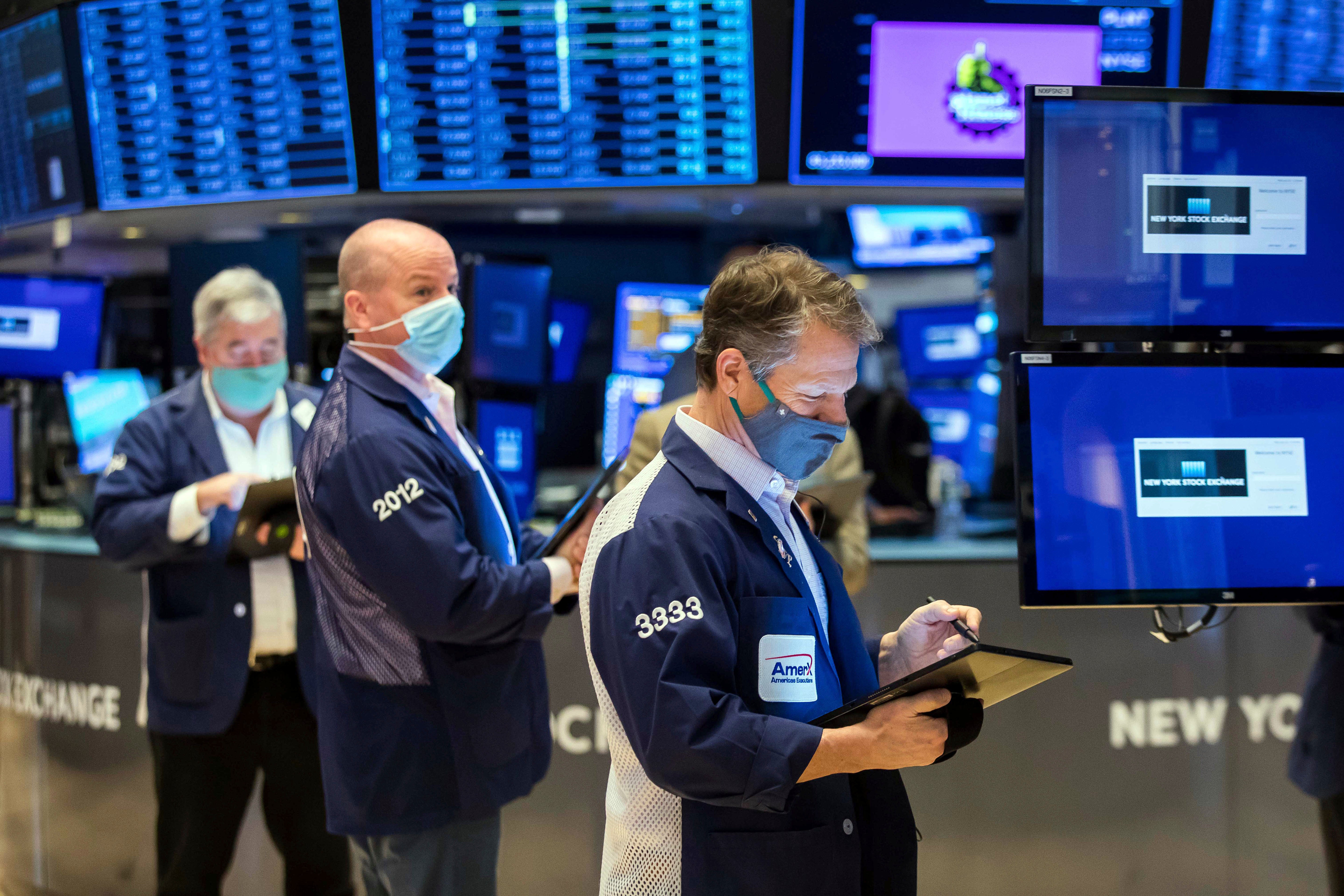Asian stocks mostly lower, eyeing Fed, China omicron cases
Asian shares have mostly declined in cautious trading following a retreat on Wall Street

Your support helps us to tell the story
From reproductive rights to climate change to Big Tech, The Independent is on the ground when the story is developing. Whether it's investigating the financials of Elon Musk's pro-Trump PAC or producing our latest documentary, 'The A Word', which shines a light on the American women fighting for reproductive rights, we know how important it is to parse out the facts from the messaging.
At such a critical moment in US history, we need reporters on the ground. Your donation allows us to keep sending journalists to speak to both sides of the story.
The Independent is trusted by Americans across the entire political spectrum. And unlike many other quality news outlets, we choose not to lock Americans out of our reporting and analysis with paywalls. We believe quality journalism should be available to everyone, paid for by those who can afford it.
Your support makes all the difference.Asian shares mostly declined in cautious trading Tuesday following a retreat on Wall Street
Investors are keeping an eye on rising numbers of coronavirus cases, especially in China where a third city has locked down its residents because of a COVID-19 outbreak, raising the number confined to their homes in China to about 20 million people.
Such disruptions can have region-wide implications for trade and other activity. Major companies, including automakers such as Toyota, had been counting on a recovery in the supply of semiconductor chips and other products from China and the rest of Asia, as vaccinations and other coronavirus prevention efforts has advanced. The recent surge in infections by the omicron variant of coronavirus has shaken such hopes.
“China continues to grapple with an uptick in COVID-19 cases, with restriction measures kicking in to contain spreads before the Winter Olympics in February. While it may still be too early to say, the risks on watch may be from any disruptions in supply chains aggravating pricing pressures or a shift in China’s zero-COVID approach,” said Yeap Jun Rong, market strategist at IG in Singapore.
Japan’s benchmark Nikkei 225 fell 0.9% to finish at 28,222.48. South Korea’s Kospi picked up less than 1 point to 2,927.38. Australia’s S&P/ASX 200 dipped 0.8% to 7,390.10. Hong Kong’s Hang Seng shed 0.5% to 23,624.11, while the Shanghai Composite index sank 0.8% to 3,564.61.
Benchmarks fell on Wall Street on Monday following a sell-off last week as investors shifted holdings in anticipation the Federal Reserve will raise interest rates this year, among other moves aimed at lowering inflation.
High inflation is taking a toll on American families, Federal Reserve Chair Jerome Powell acknowledged in remarks to be delivered at a Tuesday congressional hearing on Powell's nomination to a second four-year term.
“We know that high inflation exacts a toll, particularly for those less able to meet the higher costs of essentials like food, housing, and transportation,” Powell said in prepared testimony.
On Wall Street, a broad wave of selling had the S&P 500 down by 2% in early going, but a late-afternoon burst of buying left the benchmark index with a loss of just 0.1%, at 4,670.29.
The Dow Jones Industrial Average fell 0.5% to 36,068.87 and the tech-heavy Nasdaq eked out a gain of less than 0.1%, after having been down 2.7%, to end at 14,942.83.
The Russell 2000 fell 8.66 points, or 0.4%, to 2,171.15.
The selling began to lose momentum at the same time as a rise in Treasury yields eased. The 10-year Treasury briefly hit 1.84% before slipping back to 1.76% by late afternoon. That matches where the yield was late Friday.
Higher interest rates make stocks of expensive tech companies and other pricey growth companies less attractive to investors and the sector has been slipping as bond yields rise. The tech sector has been the biggest weight on the market through January and is coming off of its worst week since October 2020.
Big technology stocks have an outsized influence on the S&P 500 because of their huge size. Coming into the year, the technology sector represented 29.2% of the S&P 500.
Higher interest rates could help snuff the high inflation sweeping the world, but they would also mark an end to the conditions that have put financial markets in “easy mode” for many investors since early 2020. The market now puts the chances of the Fed raising short-term rates by at least a quarter point in March at around 78%. A month ago, it was about 36%.
Investors have a busy week of economic reports and corporate earnings.
On Wednesday, the Labor Department will release the Consumer Price Index for December. The agency will release give investors details on how inflation is impacting businesses with its Producer Price Index for December on Thursday.
On Friday, Citigroup, JPMorgan Chase and Wells Fargo will report their latest quarterly financial results.
In energy trading, U.S. benchmark crude rose 59 cents to $78.82 a barrel in electronic trading on the New York Mercantile Exchange. It gave up 67 cents to $78.90 on Monday. Brent crude, the international standard, added 46 cents to $81.33 a barrel.
In currency trading, the U.S. dollar rose to 115.22 Japanese yen from 115.20 yen. The euro cost $1.1336, up from $1.1326.